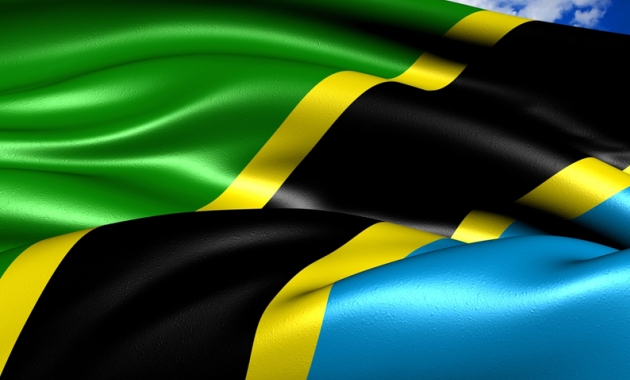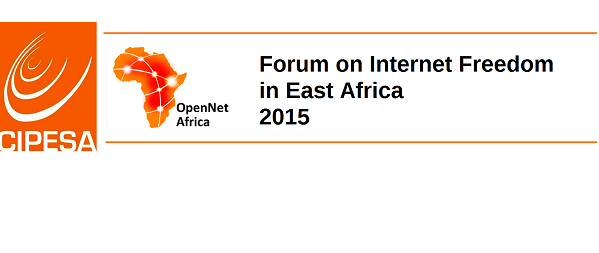By Gasirigwa G.S |
As the 25 October general election draws closer in Tanzania, journalists have been urged to be impartial in their reporting. Many have also taken steps to ensure that their digital communication is not compromised particularly when seeking information during the electioneering period.
In August, the Media Institute of Southern Africa (MISA) Tanzania Chapter, in partnership with the Collaboration on International ICT Policy for East and Southern Africa (CIPESA) organized two training workshops on access to information with special focus on digital safety for Media practitioners in Tanzania. A total of 40 journalists (13 women and 27 men) from Geita, Mara, Mwanza and Dar es Salaam received practical digital safety skills against a backdrop of discussion on the Access to Information and Media Services bills as well as the recently passed Cybercrime Act 2015 and Statistics Act, also of 2015..
The objective of the workshops was to enhance knowledge and skills of selected media personnel in various outlets in order to enable them to access relevant information, cover and report factually and responsibly during the 2015 general election.
Participants most of whom had no prior knowledge of what the proposed and enacted laws entailed had the chance to discuss and deliberate on how safely they can cover the ongoing campaigns and the October elections without falling on the wrong side of the laws.
In February, the government of Tanzania attempted to table and pass the Access to Information (ATI) and Media Services bills under certificate of urgency. The attempt was blocked by media and access to information activists under the Coalition of Right to Information (CORI) with support from Members of Parliament. Tabling the bills under certificate of urgency meant that they would be passed into law without stakeholders review and input. CORI argued that the bills were draconian and shouldn’t be passed without earnest consultations with stakeholders.
The proposed access to information bill contains a number of provisions which are contrary to the country’s 1977 Constitution. Section 2 (4) of the bill states: “Nothing in this Act shall limit or otherwise restrict any other legislative requirement for a public authority to disclose information.” Under this provision public authorities could continue to withhold information despite the fact that the law is aimed at promoting information availability in the public domain.
The Bill further exempts the disclosure of certain information, placing vague restrictions on information which may: undermine national security; is likely to impede due process of law or endanger safety of life of any person; undermine lawful investigations being conducted by law enforcements agencies; and “significantly” undermine the operations of Tanzania Broadcasting Corporation (Section 6).
Other proposed provisions carry even wider violation of right to information. For example, Section 18(1) of the Bill states that “Information obtained by a person requesting from the information holder shall not be for public use”. Any person who contravenes this provision commits an offence and shall, upon conviction, be liable to imprisonment for a term not less than five years.
In a separate move, the government tabled and passed into law the Cybercrime Act and Statistics Act under certificates of urgency, making them operational as of September 1, 2015.
For its part, the Cybercrimes Act among many other things, criminalizes and penalizes the publication of “information, data or facts presented in a picture, texts, symbol or any other form in a computer system where such information, data or fact is false, deceptive, misleading or inaccurate”. Offenders are liable for at least six-months imprisonment and/or a fine of Tanzania Shillings (TZS)3 million (USD 1,380). The law also provides for at least three years in prison and/or a fine of at least TZS 10 million (USD 4,600) for publication of materials that incite, deny, minimize or justify acts that constitute genocide or crimes against humanity.
Regarding the initiation of transmission or re-transmission of unsolicited messages, the Cybercrimes Act provides for at least one year in prison and/or a fine of TZS3 million (USD 1,380) or three times the value of any undue advantage gained, whichever is higher.
The workshops were eye openers for many who stated they were not aware that several programmes and news items being run could potentially violate new laws. An editor expressed concern on content previously published which might be in contravention to the Cybercrimes and Statistics Acts and “could get us into trouble with the law.”
Moreover, the government through Tanzania Communication Regulatory Authority (TCRA) introduced the Subsidiary Legislation known as the political broadcasting services Code of 2015. The Code was gazetted in June this year and communicated to media owners in a seminar organized by TCRA. The code, which is not available in softcopy has serious implications on electronic media (Radio, TV and Social Media) during reporting of election issues.
The workshops served as opportunities to familiarise journalists with the recently passed laws and tabled bills. During the proceedings, journalists were also reminded that although the Media Services and Access to Information bills were not passed by parliament, the Newspaper Act of 1976 remained operational and media practitioners remain bound by it.
“I didn’t not know about this Broadcasting Code, TCRA summoned us bloggers to a meeting and made us sign a document that we were told was just guidelines for media and online users. They never told us we were signing our own jail warrants”, added Geofrey Adroph, photographer and blogger.
In light of the new and existing laws, the workshops and interactions made participants revisit ethical considerations and reporting guidelines in the run up to, during and after the elections.
Forum on Internet Freedom in East Africa
The Collaboration on International ICT Policy for East and Southern Africa (CIPESA), under the OpenNet Africa initiative, is proud to announce the upcoming Forum on Internet Freedoms in East Africa. The two-day Forum is scheduled for 28 – 29 September 2015, in Kampala, Uganda, to coincide with the International Right to Know Day.
During the Forum, we’ll discuss the current state of internet freedoms in Africa, including threats, emerging issues, and opportunities for action to promote access, privacy and security online. The Forum brings together human rights defenders, journalists, government officials, academia, bloggers, developers, the arts community, law enforcement agencies and communication regulators, all of whom have a role to play in advancing the rights of citizens to privacy and freedom of expression in the online sphere. At the inaugural 2014 forum, we hosted 85 participants from Burundi, Kenya, Nigeria, Tanzania, Rwanda, and Uganda.
Visit the Forum page for more information and application form.
CIPESA Promotes Digital Safety Awareness and Skills for Media Practitioners in Kenya
By Marilyn Vernon & Liz Orembo |
Threats to citizens’ access to information, privacy, security and freedom of expression online are increasingly coming under scrutiny in East Africa. According to the World Press Freedom Index, Kenya who was ranked number 71 out of 180 countries in 2013, dropped 29 places to number 100 in 2014. Meanwhile, cybercrime is also on the rise in the country. The Kenya Cyber Security Report 2014 shows a 108% increase in detected cyber threat incidents, from 2.6 million attacks in 2012 to 5.4 million in 2013.
The Cyber Security Report attributes the surge in criminal activity to the increasing value of information and the lower risk of detection and capture. Businesses and individuals are susceptible to threats stemming from spyware, social media, unsecured email, and theft of mobile computing devices.
Kenya’s ranking in the World Press Index reflects the deteriorating relationship between the media and the state. The steady decline is partly attributed to the passing of prohibitive legislation, most notably the Kenya Information and Communications (Amendment) Act and the Media Council Act of 2013, which subjects violators to heavy fines and asserts undue state control over media practice.
A few journalists in Kenya have boldly reported on sensitive topics at the risk of imprisonment or financial penalties. Reported cases of assassination, disappearance, destruction of property, confiscation of equipment, and arrests are among the list of violations committed against journalists and activists.
Notably, controversial blogger Bogonko Bosire, who worked for Agence France Presse (AFP), went missing two years ago. He was known for his criticism of President Uhuru Kenyatta’s administration during the International Criminal Court (ICC) proceedings. It is reported that Bosire had been threatened multiple times, and his website Jackal News suffered at least one digital attack. Various rumors surrounding his fate spread online, but his whereabouts remain unknown.
In a digital safety and security training workshop conducted last month by the Collaboration on International ICT Policy for East and Southern Africa (CIPESA) in partnership with Kenya ICT Action Network (KICTANet), journalists, bloggers and activists admitted to using the Internet for research, communication and reporting but with little or no understanding of the existing digital threats.
“Why do I need security?” and “I’m not that important for anyone to waste time looking for information in my gadgets” were some of the comments participants made.
Other shortcomings identified in the pre-workshop assessment included poor organisation IT mobility policies whereby, just like other business organisations in Kenya, media houses allow their employees to carry their own devices to the workplace. Some of these devices are also used in public places by employees to meet their work targets. This increases the risks of journalists having their data lost or compromised especially since theft of mobile and computing devices is rampant in the country.
Freelance journalists indicated being unable to acquire the necessary digital safety resources as often availed to counterparts fully employed by the media houses. Besides, there was a widespread use of free web-based email services such as Yahoo, Google mail and Hotmail through which practitioners felt “sensitive communication can be intercepted since some of these email service companies have histories of being hacked”.
Accordingly, the CIPESA-KICTANet training workshop set out to equip participants with the necessary tools and knowledge needed to protect their digital information and communication, and to respond to various types of digital threats. The workshop topics ranged from the importance of digital security, secure communication and data storage, to PC and mobile device security, as well as the ethical and legal aspects of digital communication on social media platforms.
The interactive sessions enabled a knowledge-sharing environment in which participants were able to evaluate their security vulnerabilities and to choose security tools they would use to protect themselves and their work. Attendees engaged in group discussions, lab demonstrations, and case studies of ethical blogging. Participatory sessions demonstrated how to encrypt emails, create strong memorable passwords, and identify built-in security features on mobile devices to determine which are important for personal safety – taking into account that security features are only effective when used well.
As a means to protect information and guard against digital threats, the workshop facilitator, Harry Karanja, encouraged participants to use tools such as anonymous internet navigation settings, data encryption, and virtual private networks (VPN). He also recommended use of IP anonymisation and signing up with secure anonymous email services.
Participants were also urged to refrain from sharing personal identifiable information online, perform regular updates to the latest versions of operating systems, and back up their data.
Recommendations from participants for future workshops included partnering with learning institutions to train student journalists on digital security prior to engaging in professional work and the development of online tutorials for ongoing reference.
The workshop, held at Riara University in Nairobi, Kenya on June 17-18 2015, had 24 participants from Kenyan print, broadcast, and online news agencies. It is the fourth in a series of digital safety awareness and capacity building trainings conducted this year by CIPESA under its OpenNet Africa initiative. The others have been held in Tanzania and Uganda.
Hunting Down Social Media ‘Abusers’ in Uganda as Elections Near
By CIPESA Staff |
As Uganda draws closer to the February 2016 presidential elections, the fever of anxiety in government corridors is rising. Over the years, election periods have seen a crackdown on social media, voices critical of the ruling party, and independent media in the guise of promoting public order and unity as well as preventing the spread of false information. This, however, has sparked debate on the fine line between preserving national cohesion and hampering free speech.
See our full analysis of Hunting Down Social Media ‘Abusers’ in Uganda as Elections Near in our Policy Briefing Series
Data Revolution – The Reality for African Countries
By Aroob Syedah Iqbal |
IBM, the American multinational technology and consulting firm, reports that 2.5 quintillion (10^18) bytes of data are being generated everyday through search engines, social media check-ins, internet purchases and much more. The data being generated is at such an unprecedented rate that an estimated 90% of the data in the world today was created in the last two years alone.
While the digitised developed world is enthralled by the enormous amounts of data generated and the opportunities opened up by this data, developing countries are still grappling with a lack of complete data for development efforts. This lack of data in developing countries and the possibilities for data collection opened by digitisation has called for a ‘Data Revolution’ to be put at the forefront of the new global development agenda.
The need for a data revolution is at the heart of the international community’s conceptualization of the United Nations (UN)-led Post 2015 Sustainable Development Goals (SDGs). Together with a global framework of indicators for monitoring progress towards the SGDs, emphasis is placed on establishing mechanisms that facilitate collection of local dis-aggregated data annually. This high quality data is expected to facilitate implementation, accounting, and tracking of the development goals at international levels.
However, this global movement towards better data can easily fail without the committed support of national governments. Following the UN call for a Data Revolution, the African Union Council of Ministers adopted the African Data Consensus in Addis Ababa in March 2015 to ‘Africanise’ and nationalise the data revolution. The Consensus recognises and emphasises the unique contextual realities of Africa.
In Uganda, a 2014 study by Development Research and Training (DRT) into the potential impact of open data to resource allocation for poverty eradication found that though there are multiple actors within the data ecosystem, they work in silos not complementing each other’s efforts. While the overarching goal for all the actors is increasing transparency of and access to available data for improved decision-making and ultimately for poverty eradication, the established and emerging open data actors were found to be “polarized, fractured, sharing different and conflicting agendas and in some cases, not even aware of one another’s existence”.
An earlier 2011 study by the Collaboration on International ICT Policy for East and Southern Africa (CIPESA) which was based on basic tenets of open data readiness (knowledge, attitudes and practice) concluded that Uganda was ready to implement Open Government Data (OGD) with appropriate support and guidance. However, there remained the need to create systems and infrastructure to converge all government data into a single location. There was also the need for a shift in attitude towards open data use and the development of appropriate regulations and standards that conform to OGD initiatives.
Accordingly, as part of the 2015 annual Civil Society (CSO) fair in Uganda, a session was convened to discuss how Ugandan stakeholders can collectively leverage experiences and contribute to the regional and international data revolution and the SDGs debate. The session, organised by DRT and moderated by CIPESA, also sought stakeholders’ input on how to operationalise the open data revolution in Uganda. For its part, DRT is leading a pilot project in two districts – Katakwi and Kitgum – to connect all stakeholders involved in data collection and development efforts in the two districts and create an open-resource toolkit on the available data. According to DRT, this collaboration between the different stakeholders is imperative to actualise the data revolution in Uganda. Other initiatives, both by government and civil society such as Know Your Budget, Ask Your Government Uganda and Open Data Uganda, among others are supporting greater openness and information access for citizens.
But Michael Niyitegeka – an independent consultant and a panelist at CSO fair session – noted how the data community in Uganda was currently focused on the generation of data, without putting in place appropriate structures for the processing, analysis and dissemination of relevant and useful data for decision-making processes. He also emphasised the importance of digital literacy for the country to realise the data revolution.
“Even though the Africa Telecom Outlook Report, 2014 estimates that 30% of the continent’s population is expected to own smartphones by 2017, the ownership of these devices does not imply the ability for citizens to engage with social media networks or information platforms to utilise data for efforts to improve their livelihoods or holding their leaders accountable,” said Mr. Niyitegeka.
In agreement, Dr. Florence Tushabe, a Lecturer at the Uganda Technology and Management University, also a panelist of the session, noted that “to be able to fully contribute to and benefit from the data revolution, Uganda will need the technical and human expertise it currently lacks to collect and then analyse the data.” She added that there is a need also to test locally, the hypothesis that data availability directly informs citizens’ decision-making processes and improves accountability as envisaged by the data revolution theory of change.
With only 10% of Uganda’s population connected to the national electricity grid and an adult literacy level of 73%, achieving the data revolution requires investment not only in data collection, but also in the capacity to demand and analyse that data by citizens. Capacity building is also required for civil society organisations to appropriately leverage data analysis for advocacy and engagement efforts for development. For the policy makers, the analysis would inform development interventions and investments.
Aroob Syedah Iqbal is an AidData Summer Fellow currently stationed at CIPESA. She is pursuing a Masters in Global Policy Studies at the University of Texas, Austin – USA.




